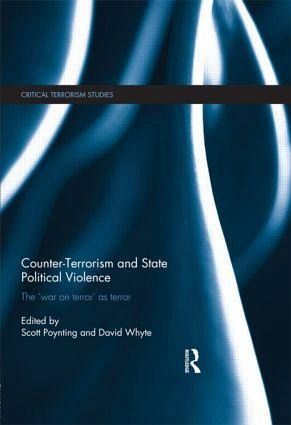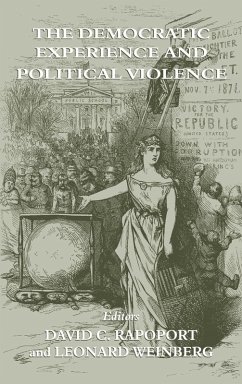
Counter-Terrorism and State Political Violence
The 'War on Terror' as Terror
Herausgeber: Poynting, Scott; Whyte, David
Versandkostenfrei!
Versandfertig in 1-2 Wochen
178,99 €
inkl. MwSt.

PAYBACK Punkte
89 °P sammeln!
This edited volume aims to deepen our understanding of state power through a series of case studies of political violence arising from state 'counter-terrorism' strategies. The book examines how state counter-terrorism strategies are invariably underpinned by terror, in the form of state political violence. It seeks to answer three key questions: To what extent can counter-terror strategies be read as a form of state terror? How fundamental is state terror to the maintenance of a neo-liberal social order? What are the features of counter-terrorism that render it so easily reducible to state te...
This edited volume aims to deepen our understanding of state power through a series of case studies of political violence arising from state 'counter-terrorism' strategies. The book examines how state counter-terrorism strategies are invariably underpinned by terror, in the form of state political violence. It seeks to answer three key questions: To what extent can counter-terror strategies be read as a form of state terror? How fundamental is state terror to the maintenance of a neo-liberal social order? What are the features of counter-terrorism that render it so easily reducible to state terror? In order to explore these issues, and to reach an understanding of what it means to say that the 'war on terror' is terror , the contributing authors draw upon case studies from a range of geographical contexts including the UK and Northern Ireland, the US and Colombia, and Sri Lanka and Tamil Eelam. Analysing these case studies from a psychological-warfare and hegemonic perspective, the book also includes two chapters from Noam Chomsky and John Pilger, which provide a global and historical context. This book will be of great interest to students of critical terrorism studies, political violence, war and conflict studies, sociology, international security and IR.












